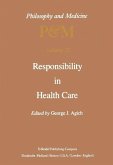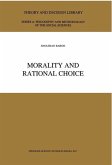I Several years ago, when the Carter administration announced that it would support congressional action to end the public fund ing of abortions, the President was asked at a press conference whether he thought that such a policy was unfair; he responded, "Life is unfair." His remarks provoked a storm of controversy. For other than those who, for principled reasons, opposed abor tion on any grounds, it seemed that the President's comments were cruel, violating what was thought to be an American com mitment to providing equal access to health services to all citi zens, regardless of their capacity to pay. Those sentiments had, in fact, been reflected in public opinion polls that had, for at least three decades, indicated that Americans supported the propo sition that the government should guarantee health care to all. Ultimately, those beliefs had been translated into the oft-ex 1 pressed political demand for a one-class system of health care. This commitment to equality is rather remarkable. American society evidences a striking willingness to tolerate vast inequal ities with regard to income and wealth. While it guarantees ed ucation to all children, there is not even a pretense that the children of the wealthy and the children of the poor ought to get precisely the same kind of schooling. While some commitment 'Hazel Erskine. "The Polls: Health Insurance," Public Opinion Quarterly, XXXIX (Spring, 1975), 128-143.
Dieser Download kann aus rechtlichen Gründen nur mit Rechnungsadresse in A, B, BG, CY, CZ, D, DK, EW, E, FIN, F, GR, HR, H, IRL, I, LT, L, LR, M, NL, PL, P, R, S, SLO, SK ausgeliefert werden.
Hinweis: Dieser Artikel kann nur an eine deutsche Lieferadresse ausgeliefert werden.









